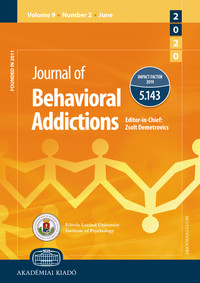Machine learning-based analysis of adolescent gambling factors
Machine learning-based analysis of adolescent gambling factors
Author(s): Wonju Seo, Namho Kim, Sang-Kyu Lee, Sung-Min ParkSubject(s): Behaviorism
Published by: Akadémiai Kiadó
Keywords: adolescents; problem gambling; machine learning-based analysis method; feature engineering
Summary/Abstract: Background and aims. Problem gambling among adolescents has recently attracted attention because of easy access to gambling in online environments and its serious effects on adolescent lives. We proposed a machine learning-based analysis method for predicting the degree of problem gambling. Methods. Of the 17,520 respondents in the 2018 National Survey on Youth Gambling Problems dataset (collected by the Korea Center on Gambling Problems), 5,045 students who had gambled in the past 3 months were included in this study. The Gambling Problem Severity Scale was used to provide the binary label information. After the random forest-based feature selection method, we trained four models: random forest (RF), support vector machine (SVM), extra trees (ETs), and ridge regression. Results. The online gambling behavior in the past 3 months, experience of winning money or goods, and gambling of personal relationship were three factors exhibiting the high feature importance. All four models demonstrated an area under the curve (AUC) of >0.7; ET showed the highest AUC (0.755), RF demonstrated the highest accuracy (71.8%), and SVM showed the highest F1 score (0.507) on a testing set. Discussion. The results indicate that machine learning models can convey meaningful information to support predictions regarding the degree of problem gambling. Conclusion. Machine learning models trained using important features showed moderate accuracy in a large-scale Korean adolescent dataset. These findings suggest that the method will help screen adolescents at risk of problem gambling. We believe that expandable machine learning-based approaches will become more powerful as more datasets are collected.
Journal: Journal of Behavioral Addictions
- Issue Year: 9/2020
- Issue No: 3
- Page Range: 734-743
- Page Count: 10
- Language: English

